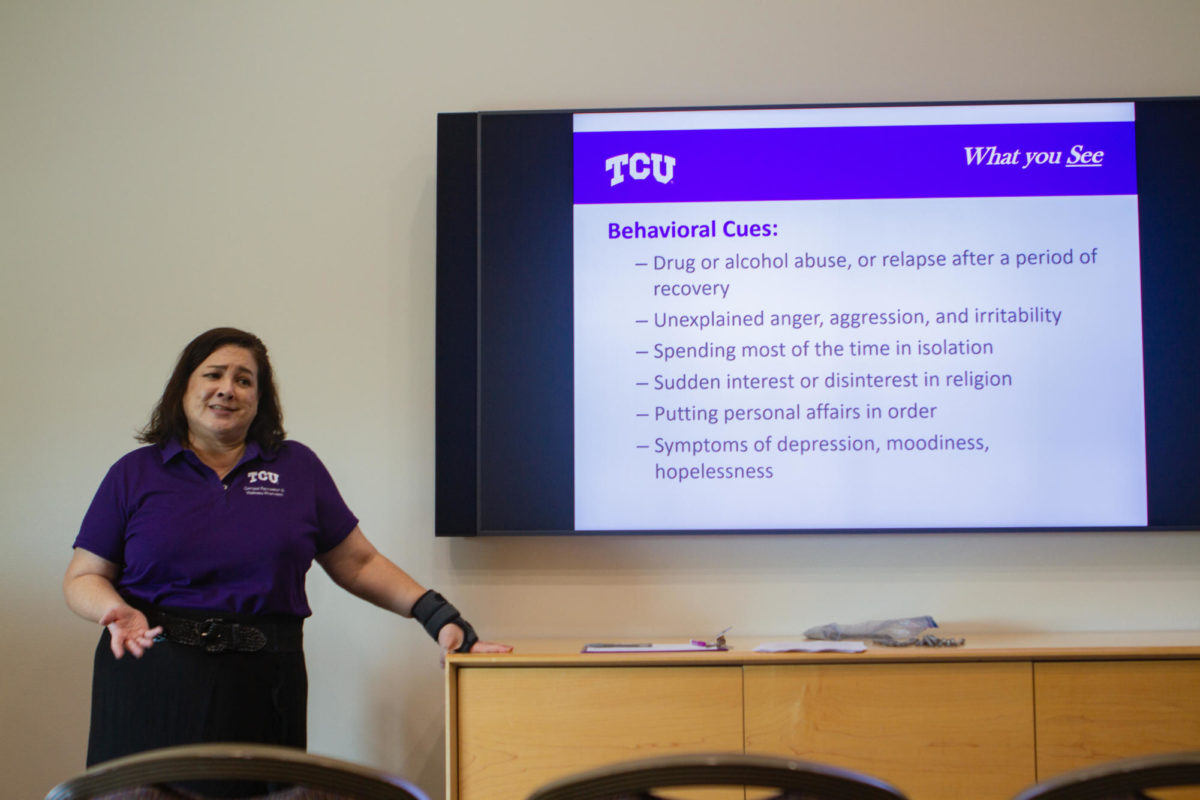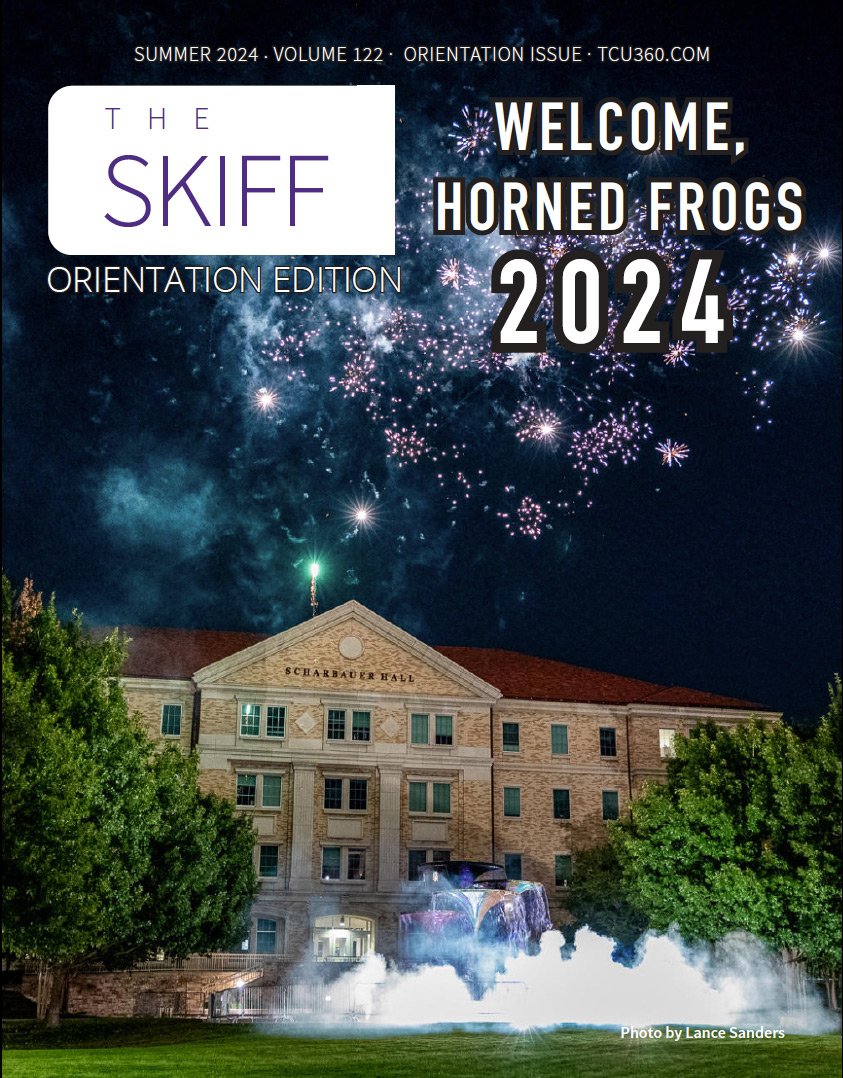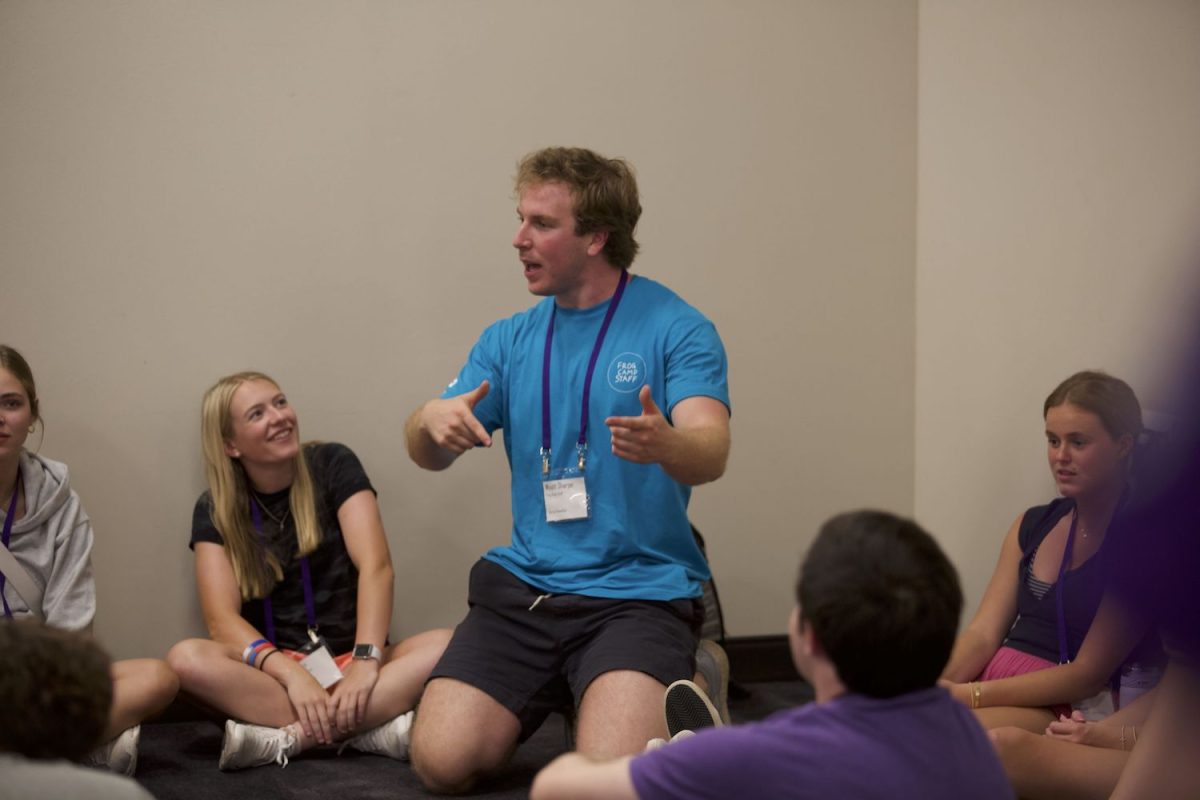TCU concluded Mental Health Awareness Week with a suicide prevention workshop.
Students learned how to recognize the variety of suicide warning signs and how to utilize the ‘question, persuade and refer’ (QPR) method to aid people at risk.
“My biggest takeaway was the importance of asking the question,” Grace O’Neil, a first-year student, said.
A key step in executing the QPR method is to directly ask people in need of assistance whether they are having suicidal thoughts.
“This allows suicide to be destigmatized in our society and people are better able to talk about their feelings and their intentions,” O’Neil said.
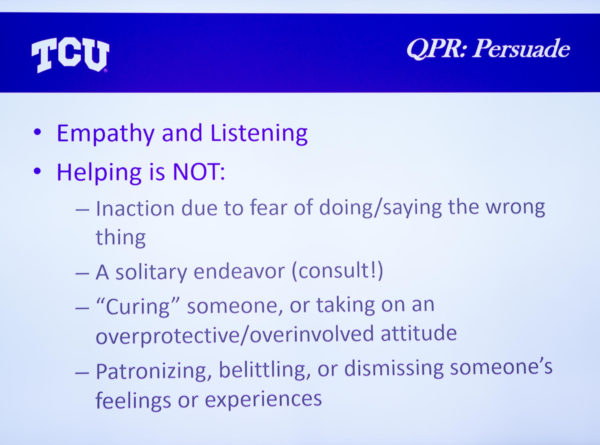
After centuries of neglecting the existence of mental illnesses, society is finally starting to emphasize the importance of mental health and going back to solve the issues the neglect created.
“I think a lot of programs like this are very helpful to take the right steps,” O’Neil said.
The TCU Recreation and Wellness Promotion Center organized events from September 11th to September 15th to teach the student population about all the mental health resources available on campus.
“It’s my favorite thing about what I do,” said Yvonne Giovanis, assistant director of the TCU Wellness Center, when asked about what it means to be able to offer help to so many students.
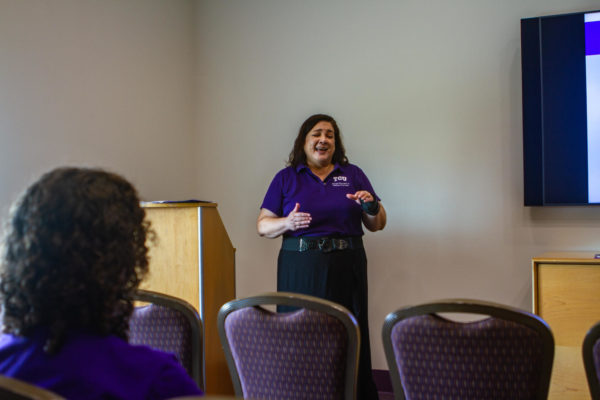
The workshop aimed to show students that “they have the ability to check in on each other, and their observations are valid and can be acted upon when they have concerns for people in their community,” Giovanis said.
Overall, individuals are more willing to acknowledge that themselves and others may have mental health challenges like depression or anxiety as well.
A study by the American Psychological Association found that 87% of American adults say having a mental health disorder is nothing to be ashamed of.
“That definitely helps bring things like suicidal ideation closer to the surface, it’s a little less stigmatized and less taboo,” Giovanis said.
The battle with mental health and anxiety specifically is not over however, as major technological advancements in society and COVID-19 have been an influence over the last decade.
“Our students have been affected by how school and communication has changed, there are a lot of nerves around person-to-person communication, not even just mental health.”
“The same tools we find are helping people connect: social media, texting, Zoom meetings, are also the things that create some barriers,” Giovanis said.
With new problems, new forms of aid are being established, as the Federal Communications Commission established the phone number 988 as the suicide and crisis lifeline on July 15th, 2022.
Only having this resource available for six months in 2022, there was a 2.6% increase in total suicides in the U.S. from 2021 to 2022 according to the Centers for Disease Control and Prevention.
However, institutions across the country like TCU will continue to provide a variety of resources in hope of seeing the numbers diminish and the state of our society improve.


